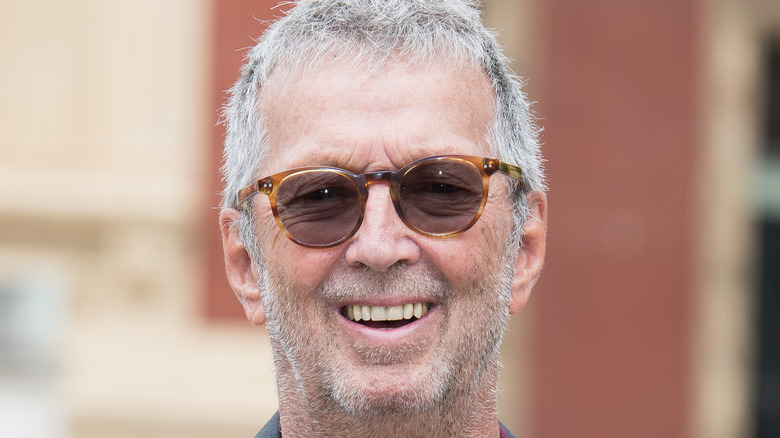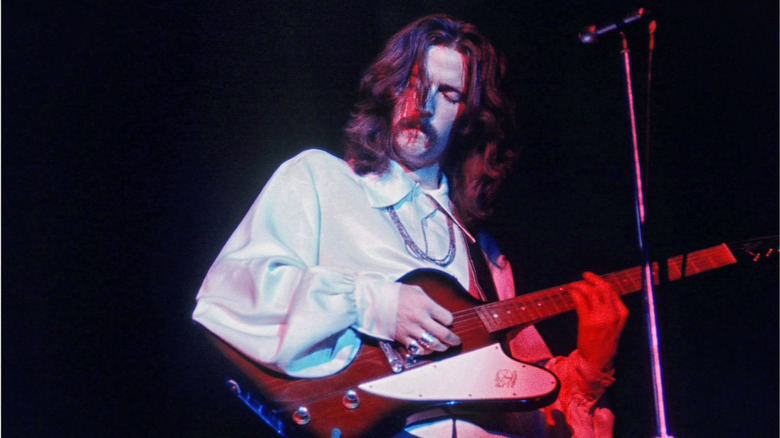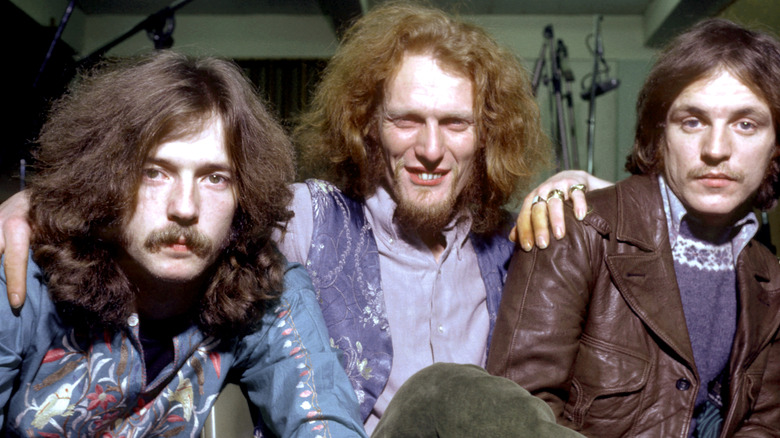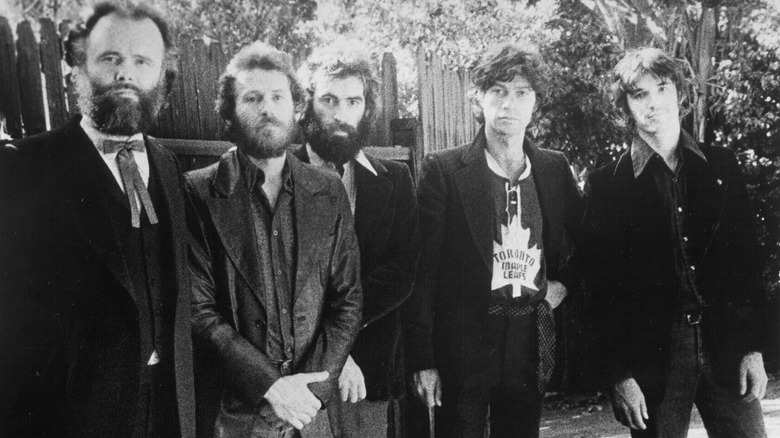Why Eric Clapton Wanted To Leave Cream
They were supposed to be the "cream of the crop" of British blues and jazz musicians, hence the name, but their music served as a blueprint for many hard rock and heavy metal bands that followed in their wake. Made up of singer-bassist Jack Bruce, singer-guitarist Eric Clapton, and drummer Ginger Baker, Cream's time in the limelight lasted only a few years — from 1966 to 1968, to be exact. But as one of rock's first supergroups (if not the first) and a pioneering power trio, this threesome of uber-talented musicians recorded several future classic rock staples, a few of which, including "Sunshine of Your Love" and "White Room," did quite well on the pop charts.
It was at the pinnacle of their commercial success that Cream decided to call it a day in the spring of 1968 — according to Baker, the band was pretty much mailing it in at some of their recent shows, and they knew they were better than that. In July of that year, Clapton made things official, announcing the band's imminent breakup ahead of a final tour and a farewell album. However, he revealed in an interview more than three decades later that he had made up his mind sometime before Cream mutually agreed to split.
Clapton was stressed out by the physical demands of playing with Cream
Eric Clapton may have been "God" for numerous rock fans in England (and other parts of the world) in the 1960s, but he was, when everything was said and done, just a young man overwhelmed by the demands of touring as Cream's time as a band came to a close. In a 2004 interview with Uncut, Clapton recalled dealing with a "pretty severe" workload where he and his bandmates would play six nights a week. This schedule, as he noted, caused his weight to drop to about 125 pounds, leaving him "[looking] like death."
It certainly didn't help matters at all that the concerts themselves were stressful. Per The History of Rock and Roll, Jack Bruce and Ginger Baker often tried to outdo each other in terms of loudness, with Bruce taking full advantage of the band's new Marshall amplifier stacks and Baker having difficulty keeping up on the drums. Things got so bad that Clapton claimed he actually stopped playing during one show, and neither of his bandmates noticed. And it was Baker and Bruce's often contentious relationship that also proved instrumental in informing Clapton's desire to leave Cream.
Band infighting also contributed to Clapton's disillusionment
One common problem with supergroups is that the combination of egos and combustive personalities makes it inevitable that some sort of tension will brew and eventually lead to the band's dissolution. Cream was legendary for such intra-band tension, and it's that infighting that many people often think first of when the band's name is mentioned, as opposed to each individual member's enviable musical skills. Much of that infighting was between Eric Clapton's two other bandmates, Jack Bruce and Ginger Baker.
While speaking to Uncut, Clapton explained that he often found himself stuck in the middle whenever Bruce and Baker were feuding. "Ginger and Jack were dynamic characters and pretty overwhelming," he said. "It felt like I was in a confrontational situation 24 hours a day. Half my time was spent trying to keep the peace. And on top of that, you're trying to be creative and make music." The iconic guitarist also revealed that he often told the band's manager, Robert Stigwood, that he wanted to leave Cream because of Bruce and Baker's incessant squabbling, only to be advised to give it another week and see what happens.
At that point, Clapton needed an impetus, something that would truly motivate him to depart Cream once and for all. He found that in the form of a hitherto little-known group of musicians who (mostly) hailed from Canada and had just completed some seminal recordings with none other than Bob Dylan ...
Clapton wanted to emulate the Band, but the rest of Cream didn't
Before they became known as the, um, musical act with the most exactly-what-it-says-on-the-tin name ever, the Band, then known as the Hawks, served as the backing group for American rockabilly singer Ronnie Hawkins. By the mid-'60s, the group had become friends with Bob Dylan, and it was in 1967 when they got together to record a series of tunes that would eventually be released in 1975 as "The Basement Tapes."
At the time Eric Clapton was contemplating leaving Cream, the songs from "The Basement Tapes" were still circulating as bootlegs, and "Slowhand" apparently heard one of those bootlegs and had an epiphany — these would-be hippie icons were making the kind of music he imagined Cream should be making. "After that, another friend played me [the Band's 1968 debut album] 'Music From Big Pink,'" Clapton told Uncut. "It shook me to the core."
When asked to explain why discovering the Band proved to be the "turning point" for Clapton, the singer-guitarist explained that he was no longer happy to celebrate how Cream had carved a niche for itself as an influential psychedelic band that specialized in loudness, instrumental heroics, and extended jams. "When I get what I want, I don't want it anymore. I really wasn't happy, and I used The Band as a lever to say I'd had enough," he said.
Ultimately, Cream decided to disband before anyone formally quit, but not before playing a massive tour that wrapped up in November 1968 at the Royal Albert Hall in London, and releasing an aptly-titled farewell studio album, "Goodbye," in early 1969.



